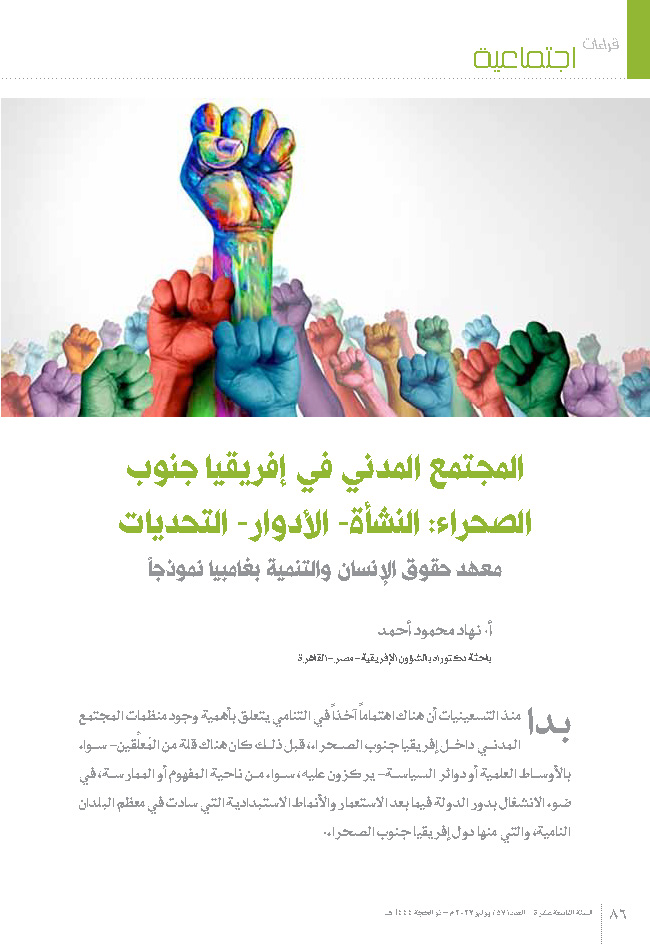Publisher: Qira’at Afriqiyah Magazine
Issue: 57, July 2023
ISSN: 2634-131X
Year : 19
Pages: 86-97
Author: Nehad Mahmoud Ahmed Ibrahim
Download pdf

Abstract:
Civil society (CS) in sub-Saharan Africa can be described as having a vital role in both developmental and humanitarian aspects, as well as roles related to promoting democracy, resolving conflicts, and filling many gaps alongside the state. Accordingly, this paper examines the role of civil society in sub-Saharan Africa. The problem is the overwhelming reliance that many citizens have on civil society for result-oriented democracy and development in Africa as compared with the civil society roles in developed nations. However, civil society in Africa is surrounded by challenges such as a hostile political environment, inadequate internal- funding, selfishness of the civil society themselves, siding with governments, and a host of other criticism faced by civil society. The general objective of the study is to examine the role of civil society in Sub- Saharan Africa with an emphasis on The Gambia’s Institute for Human Rights and Development in order to clarify the functions and difficulties faced by Sub-Saharan Africa’s civil society. The paper found that the civil society in sub-Saharan Africa operated under hostile political environments. The paper recommends that the CS in Africa should unite in their activities against any repression, and resist every attempt by the government to cause division amongst their ranks of opposition parties. They should operate within the spheres of the constitutional provision so as to respect the rule of law.
